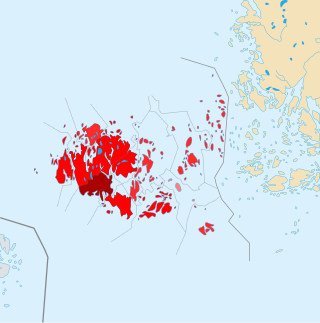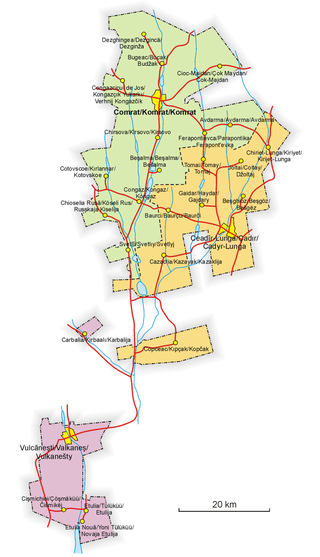Related Research Articles
Sir Roy Malcolm Anderson is a leading international authority on the epidemiology and control of infectious diseases. He is the author, with Robert May, of the most highly cited book in this field, entitled Infectious Diseases of Humans: Dynamics and Control. His early work was on the population ecology of infectious agents before focusing on the epidemiology and control of human infections. His published research includes studies of the major viral, bacterial and parasitic infections of humans, wildlife and livestock. This has included major studies on HIV, SARS, foot and mouth disease, bovine tuberculosis, bovine spongiform encephalopathy (BSE), influenza A, antibiotic resistant bacteria, the neglected tropical diseases and most recently COVID-19. Anderson is the author of over 650 peer-reviewed scientific articles with an h-index of 125.

Sunetra Gupta is an Indian-born British infectious disease epidemiologist and a professor of theoretical epidemiology at the Department of Zoology, University of Oxford. She has performed research on the transmission dynamics of various infectious diseases, including malaria, influenza and COVID-19, and has received the Scientific Medal of the Zoological Society of London and the Rosalind Franklin Award of the Royal Society. She is a member of the scientific advisory board of Collateral Global, an organisation which examines the global impact of COVID-19 restrictions.

Dame Angela Ruth McLean is professor of mathematical biology in the Department of Biology, University of Oxford, and Chief Scientific Adviser to the UK Government.

Public Health England (PHE) was an executive agency of the Department of Health and Social Care in England which began operating on 1 April 2013 to protect and improve health and wellbeing and reduce health inequalities. Its formation came as a result of the reorganisation of the National Health Service (NHS) in England outlined in the Health and Social Care Act 2012. It took on the role of the Health Protection Agency, the National Treatment Agency for Substance Misuse and a number of other health bodies. It was an executive agency of the Department of Health and Social Care, and a distinct delivery organisation with operational autonomy.
Barry R. Bloom is Harvard University Distinguished Service Professor and Joan L. and Julius H. Jacobson Professor of Public Health in the Department of Immunology and Infectious Diseases and Department of Global Health and Population in the Harvard T.H. Chan School of Public Health in Boston, where he served as dean of the faculty from 1998 through December 31, 2008.

Sir Christopher John MacRae Whitty is a British epidemiologist, serving as Chief Medical Officer for England and Chief Medical Adviser to the UK Government since 2019.
The COVID-19 pandemic in Martinique was a part of the ongoing global viral pandemic of coronavirus disease 2019 (COVID-19), which was confirmed to have reached the French overseas department and region of Martinique on 5 March 2020.
The COVID-19 pandemic in Guadeloupe was a part of the ongoing global viral pandemic of coronavirus disease 2019 (COVID-19), which was confirmed to have spread to the French overseas department and region of Guadeloupe on 12 March 2020.
The COVID-19 pandemic was confirmed to have reached the British Overseas Territory of Akrotiri and Dhekelia in March 2020.
The Scientific Advisory Group for Emergencies (SAGE) is a British Government body that advises central government in emergencies. It is usually chaired by the United Kingdom's Chief Scientific Adviser. Specialists from academia and industry, along with experts from within government, make up the participation, which will vary depending on the emergency. SAGE gained public prominence for its role in the 2020 COVID-19 pandemic in the United Kingdom.
The New and Emerging Respiratory Virus Threats Advisory Group (NERVTAG) is an advisory body that advises the United Kingdom Government's Chief Medical Advisor / Chief Medical Officer for England, who in turn advises the UK Department of Health and Social Care and relevant ministers regarding threats from viral respiratory tract infections. The body replaced the UK Scientific Pandemic Influenza Advisory Committee (SPI) as part of a move to expand the scope to cover the threat of other respiratory viruses, besides pandemic influenza. The inaugural meeting was held on 19 December 2014 where the terms of reference were agreed. The group has been advising the Department of Health for some years and minutes of meetings are now regularly published, backdated to 2014. As of 2020, the group has been advising specifically on the COVID-19 pandemic.

Sir Jonathan Stafford Nguyen Van-Tam is a British healthcare professional specialising in influenza, including its epidemiology, transmission, vaccinology, antiviral drugs and pandemic preparedness.

The COVID-19 pandemic was confirmed to have reached Åland, an autonomous region of Finland, in March 2020.
The COVID-19 pandemic was confirmed to have reached Sevastopol in March 2020. The Russian government includes the cases in Sevastopol in the count of cases in Russia.
Sir William John Edmunds is a British epidemiologist, and a professor in the Faculty of Epidemiology and Population Health at the London School of Hygiene & Tropical Medicine.

Maria Petronella Gerarda Koopmans is a Dutch virologist who is Head of the Erasmus MC Department of Viroscience. Her research considers emerging infectious diseases, noroviruses and veterinary medicine. In 2018 she was awarded the Netherlands Organisation for Scientific Research (NWO) Stevin Prize. She serves on the scientific advisory group of the World Health Organization.

The COVID-19 pandemic in the Kurdistan Region is part of the ongoing worldwide pandemic of coronavirus disease 2019 caused by severe acute respiratory syndrome coronavirus 2. The COVID-19 disease was first confirmed to have reached the Kurdistan Region, an autonomous region of Iraq, on 1 March 2020.

The COVID-19 pandemic was confirmed to have reached the Autonomous Territorial Unit of Gagauzia, in Moldova, in April 2020.

Shabir Ahmed Madhi, is a South African physician who is professor of vaccinology and director of the South African Medical Research Council Respiratory and Meningeal Pathogens Research Unit at the University of the Witwatersrand, and National Research Foundation/Department of Science and Technology Research Chair in Vaccine Preventable Diseases. In January 2021, he was appointed Dean of the Faculty of Health Sciences at the University of the Witwatersrand.

The COVID-19 pandemic in the British Indian Ocean Territory is part of the ongoing worldwide pandemic of coronavirus disease 2019 caused by severe acute respiratory syndrome coronavirus 2. The virus was confirmed to have reached Diego Garcia of the British Indian Ocean Territory in November 2020.
References
- 1 2 "Advisory Committee on Dangerous Pathogens". GOV.UK. Retrieved 2020-04-19.
- ↑ "Department of Health seeks members for Advisory Committee on Dangerous Pathogens". GOV.UK. 17 June 2013. Retrieved 2020-04-19.
- ↑ "High consequence infectious diseases (HCID); Guidance and information about high consequence infectious diseases and their management in England". GOV.UK. Archived from the original on 3 March 2020. Retrieved 17 March 2020.